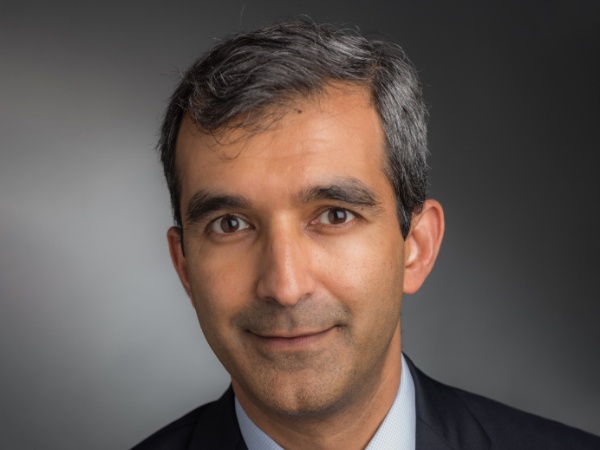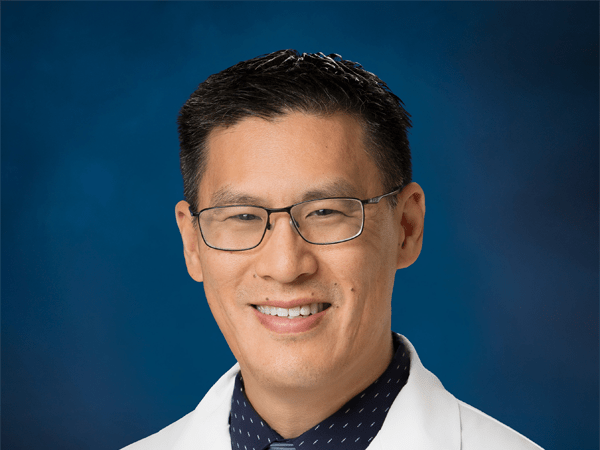A renowned surgeon and international authority on breast cancer, American College of Surgeons Past-President Edward (Ted) M. Copeland III, died on March 31 at the age of 86.


Described by his colleagues as a masterful clinician and quintessential role model for the academic surgeon, Copeland was a distinguished surgeon, patient care advocate, and leader in the surgical community.
Throughout his career, Copeland gained recognition for his contributions to advances in breast cancer surgery and treatment, becoming one of the most prominent breast cancer surgeons in the world.
“Although the passing of Dr. Copeland is a profound loss for both the field of surgery and the University of Florida, I am committed to honoring his memory by making surgical organizations and the UF Department of Surgery the best they can be,” Gilbert R. Upchurch Jr., the Edward M. Copeland III and Ann & Ira Horowitz Department Chair of the UF Department of Surgery in Gainesville, said in a statement. “After spending countless hours talking with him while he drank his beloved ginger ale, I am saddened because I know there was still more to learn. His passing serves as an important reminder that we, as practicing surgeons, should recommit ourselves to reaching out to older surgeons who still have much to offer. I have tried hard to emulate him as we continue his legacy.”
During his 50 years as an ACS Fellow, Copeland served the College and surgical profession in a variety of leadership roles, including as ACS president (2006–2007), a member of the board of governors (1990–1996), and an ACS regent (1997–2006). He was the first surgeon from Florida to be elected president of the organization. Copeland also held more than 40 other positions on several ACS committees throughout the years. In addition, he served in senior leadership positions for other organizations, including the Association for Academic Surgery, Southern Surgical Association, and American Board of Surgery.
Copeland most recently was the Edward R. Woodward Distinguished Professor of Surgery at the UF College of Medicine in Gainesville, before retiring in 2008 after a 25-year career there.
“More than anything, I’ll miss patient contact. My personality is such that I thought I did a good job of helping people through difficult times in their lives,” he said at the time.
My legacy is in the people I influenced during their formative years.
Edward M. Copeland, III
His UF career began in 1982 as professor and chair of the Department of Surgery. He held these positions until 2003. He also was the first director of the UF Health Shands Cancer Hospital (1994–1999), where he fostered the interdepartmental multidisciplinary collaboration for the delivery of cancer care that is still in place today and helped establish the UF Health Breast Center and its early research and clinical care initiatives.
And in 1996, Copeland was interim dean of the UF College of Medicine—a role that he had said was among his most satisfying experiences.
“Dr. Copeland was invested in people and seeing them succeed, connecting talent with opportunity where he could. In doing so, he was responsible for numerous people’s career growth,” said Upchurch.
A native of McDonough, GA, Copeland had an interest in science from an early age, fostered in part by his mother, who was a high school science teacher. His uncle, Murray M. Copeland, an oncologist, also was a guiding presence. As a boy, Ted Copeland visited his uncle and aunt in Washington, DC, and he was impressed by the unending care and concern Murray Copeland gave to his patients.
Ted Copeland went on to pursue a career in medicine, earning his undergraduate degree from Duke University in Durham, North Carolina, and his doctor of medicine degree from Weill Cornell Medicine Medical College. His uncle suggested that he pursue residency training at the University of Pennsylvania, where Copeland came under the tutelage of legendary surgeons Jonathan E. Rhoads and Isidor Schwaner Ravdin.
At Penn Medicine, Copeland learned what he considered to be his surgical core values: “honesty; respect for patients, colleagues, and trainees; education of the next generation; adding to the clinical and scientific knowledge base; not having surgical decisions be income driven; and respect for tradition,” he shared in his presidential address during the convocation ceremony at the 2006 ACS Clinical Congress.
After completing his residency training in general surgery at the Hospital of the University of Pennsylvania, Copeland served a two-year tour of duty in the US Army Medical Corps, with assignments in Vietnam and the Office of the Surgeon General. He was awarded a Bronze Star for meritorious service in a combat zone. In 2019, he was elected to the Florida Veterans Hall of Fame.
Copeland returned to civilian life to undertake an advanced surgical oncology fellowship at MD Anderson Cancer Center. He remained there for 10 years, advancing to the position of professor of surgery and becoming a tireless advocate for residents, students, and fellows, a passion that he carried throughout his entire career. Copeland also was part of the faculty at The University of Texas Health Science Center at Houston McGovern Medical School.
Dr. Copeland was invested in people and seeing them succeed, connecting talent with opportunity where he could. In doing so, he was responsible for numerous people’s career growth.
Gilbert R. Upchurch Jr.
“My legacy is in the people I influenced during their formative years,” he said in 2008 when he retired.
In addition to breast cancer, Copeland’s clinical and research foci included surgical nutrition, metabolism, and tumor biology. He published more than 500 journal articles and 85+ abstracts and editorials. Copeland also was the editor or co-editor of more than 20 books, including The Breast: Comprehensive Management of Benign and Malignant Disorders, and was a member of numerous editorial boards.
“We are all forever indebted to Dr. Copeland for not only his contributions to the field of surgery, but also for serving as a shining example of what it is to lead and to do so successfully,” said Upchurch.
Copeland was preceded in death by his wife of 52 years, Martha Jane Patterson Copeland, who died in 2016. He is survived by their children, Edward M. (Jennifer) Copeland IV, Catherine L. Copeland, and grandchildren Hunter and Zachary Copeland.
A 2013 oral history with Copeland appears in this issue.









